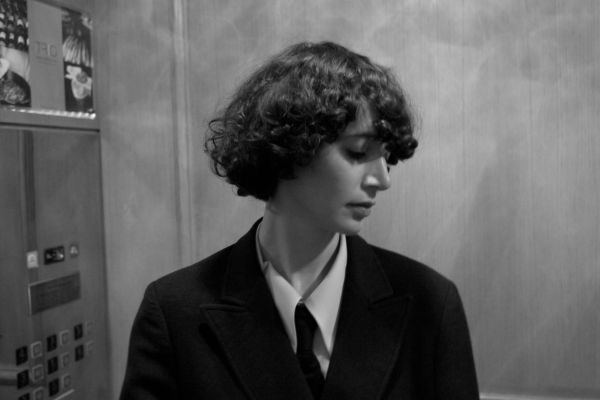
The First Bad Man
A Novel
Miranda July
(Scribner)

Well, it got high praise in all the right places --- the NYT, LAT, Elle, New York, Globe, PW, New Yorker, PW. Which instantly makes some of us suspicious. Those of us not so crazy about Don DeLillo, say; or Joyce Carol Oates.But have no fear. It's worth the ride --- more than worth it, really. No plot outlines here, it's too (fascinatingly) spaghetti-like for that. There are old men who don't know how to act, babies who do, late teenagers who flip back and forth (as late teenagers often do) and, the star of it all, Cheryl. And she really is a star. Talks to babies. In long complete sentences. In italics. And they talk back. In long complete sentences. In italics.
I have to warn you. There was a time that I wanted to give up on The First Bad Man. Almost exactly halfway through the book . . . what the literary scholars call "the watershed." Where things can go one way or another. Even if they don't.
Cheryl gets a roommate in her tiny tidy house, a roommate given her gratis by her boss. Nee Clee. Big. Twenty. (Think a white Angelfood McSpade, that R. Crumb character; or Pantagruel.) "So much a woman that for a moment I wasn't sure what I was."
When Cheryl thinks of Clee's mother, she
would not be described as a "bombshell," whereas this person leaning against the couch did bring that word to mind. It was more than just her chest dimensions --- she had a blond, tan largeness of scale.
Big appetite for little things (ramen, watching TV, trash) and even more for big things (musty, messy sleeping bags, sweatpants, huge great gulping parties with high-school/college peeps showing off their capacity for sheer noise). Also she's a look-you-in-the-eye snarler, not letting go of your arm while she tells you where to go.
After a half of book of Clee beating up on Cheryl I was ready to hang it up, give it up on the bedtable, as I looked at the black cover blackly: after all, there is only so much abuse a nice middle-aged lady like Cheryl (or me!) should have to put up with.
But hang in there. There was something that spoke to me here. Must have been Clee's feet. Big fungus problem. Big feet. Big smell.
Then there's this: How in hell is Miranda July --- what kind of name is that --- going to get this feminine hulk the hell out of Cheryl's place without one of them getting smacked or having to call in the police. But July isn't billed anywhere as the new Agatha Christie, Mary Roberts Rinehart, Dorothy Sayers in all the blurbs I read.
And she isn't, and Cheryl doesn't murder or get murdered thought I did want to do a number on Clee. Get her to take a bath, for Pete's sake. And lay off the ramen.
§ § § So don't give up. Because towards the end there you may get a bit moist, a touch blubbery. Honest injun. The kid Jack, born right there, on the fulcrum, as it were, smack-dab in the middle, just in time to take over the story. As he must.
He will get under your skin, there where we first meet him in the Intensive Care Unit where his mother Clee (the book will clear all this up when you get it, so get it, OK?) leaves Cheryl's house, leaves the baby behind, and forty-four-year old Cheryl and seven-month-old Jack proceed to have this conversation [in italics]:
It used to always be like this, I explained. This is the normal way the house usually is.
Did she not leave anything? He asked. Nothing?
We searched every room. She had been very thorough. The envelope between the books was gone; so was the soda can tab. We did finally find one thing she'd forgotten.
I carried the sundrop crystal from the bathroom and hung it in the kitchen above the sink. Jack watched it clatter against the glass a few times, then spin silently.
Rainbows. I pointed to a flock of them gliding across the wall. His little mouth hung open in transfixed awe.
This kind of thing is more along the lines of what I was expecting, he said. This will for sure be my top interest, my area of focus.
Rainbows?
And everything else like this.
There is nothing else like this. Rainbows are alone; they're the only thing like that.
The crystal began to wind the other way, sending the bright fleet back across his body. I could tell he didn't believe me; it did seem unlikely. I racked my brain for others of the species. Reflections, shadows, smoke --- these things were morose and distant cousins at best. No, rainbows are in their own class of spectacularity, every single one of them impressive, never a bleak rainbows, never with just some of the colors. Always all the colors and always in the right order.
--- Lolita Lark